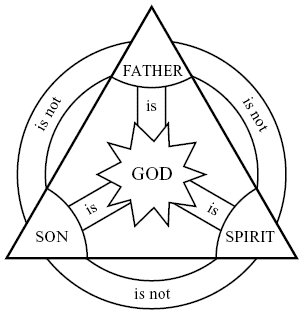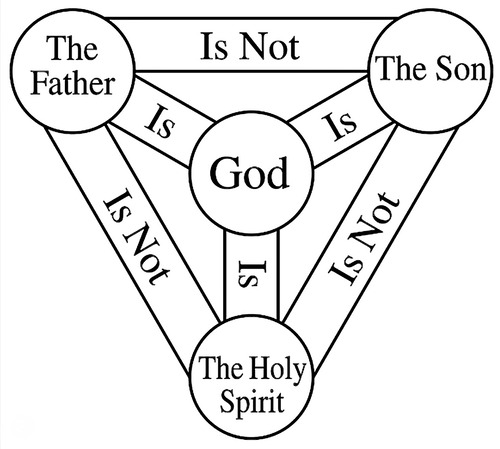Why Did God Choose Israel? Reformed Perspectives on Divine Election
The question, ‘Why Did God Choose Israel?’ has echoed through the centuries. No matter which nation God chose to be His own people, all others would naturally have felt excluded or passed over. Yet God’s choice wasn’t simply about privileges—it came with weighty responsibilities and often severe consequences for disobedience. Israel’s story teaches us being chosen by God means being called to serve His purposes, even through hardship and trial…
WHY DID GOD CHOOSE ISRAEL? THE BIBLICAL FOUNDATION
Scripture speaks clearly about God’s election of Israel. In Deuteronomy 7:6-8, Moses declares to Israel: “For you are a people holy to the LORD your God. The LORD your God has chosen you to be a people for his treasured possession, out of all the peoples who are on the face of the earth. It was not because you were more in number than any other people that the LORD set his love on you and chose you, for you were the fewest of all peoples, but it is because the LORD loves you.”
The divine choice is further expounded in Romans 9-11, where Paul wrestles with Israel’s role in God’s redemptive plan. Here, the apostle grounds Israel’s election in God’s sovereign will, emphasising the choice wasn’t based on human merit or because He foresaw the nation would respond to Him in faith. The choice was based solely on God’s sovereign good pleasure.
GOD’S SOVEREIGN FREEDOM IN ELECTION
Central to Reformed theology is the understanding that God’s choice of Israel demonstrates His absolute sovereignty in election. This choice wasn’t influenced by any external factors or conditions but flowed purely from His own counsel and purpose. As Calvin notes, God’s election of Israel serves as a mirror of His sovereign grace in choosing any for salvation.
This sovereign freedom highlights a crucial Reformed principle: election is never based on the worthiness of the chosen but always on the sovereign will of the chooser. Israel’s election thus perfectly illustrates the doctrine of unconditional election, showing us God’s choices in salvation aren’t based on anything He sees in the creature but solely on His own good pleasure.
THE PURPOSE BEHIND GOD’S CHOICE
God’s election of Israel wasn’t arbitrary but served specific purposes that would unfold throughout redemptive history. Each purpose reveals aspects of God’s character and His plan for salvation.
To Display His Glory and Grace: God chose Israel as the stage upon which He would display His divine attributes to all nations. Through His dealings with Israel—from the exodus to the exile, from divine protection to divine discipline—God demonstrated His power, faithfulness, justice, and mercy in ways that would be recorded for all generations.
To Preserve the Messianic Line: Through Abraham’s lineage, God promised to bring forth the Messiah who would bless all nations (Genesis 3:15, Genesis 12:3). Israel’s election served to preserve and protect the human ancestry of Christ, maintaining a distinct people through whom the Saviour would come according to the flesh (Romans 9:5).
To Be a Light to the Nations: Israel was chosen to be a kingdom of priests (Exodus 19:6), serving as God’s witnesses in the world. Through their obedience to God’s law and experience of His blessings, they were meant to draw other nations to the knowledge of the one true God, foreshadowing the church’s future mission.
To Receive and Preserve God’s Word: To Israel were entrusted the oracles of God (Romans 3:2). Through divine inspiration, they received, recorded, and preserved the Scriptures, providing the foundation for all we know about God’s character, works, and promises.
THE NATURE OF GOD’S CHOICE
Understanding the nature of God’s choice of Israel helps us grasp the principles of divine election that apply throughout Scripture. These characteristics reveal fundamental truths about how God works in choosing a people for Himself.
- Not Based on Size or Strength: God explicitly states that He didn’t choose Israel because they were numerous but because they were few (Deuteronomy 7:7). This demolishes any notion of God choosing based on human impressiveness or natural advantage. Instead, it demonstrates divine election operates independent of human distinctions.
- Not Based on Moral Superiority: Moses reminded Israel God’s choice wasn’t based on their righteousness, for they were a stubborn people (Deuteronomy 9:4-6). Their history of rebellion and idol worship proves that God’s election wasn’t based on foreseen faithfulness or moral excellence.
- Founded on God’s Love and Faithfulness: The ultimate ground of Israel’s election was God’s sovereign love and faithfulness to His covenant promises. As Deuteronomy 7:8 declares, “But it is because the LORD loves you and is keeping the oath that he swore to your fathers.” This love wasn’t earned or deserved but freely given according to God’s good pleasure.
- Irrevocable in Nature: Despite Israel’s repeated failures, God’s choice remained firm, demonstrating the irrevocable nature of divine election (Romans 11:29). This persistence of divine election despite human unfaithfulness reveals God’s choices are based on His unchangeable character rather than human performance.
THE HISTORICAL OUTWORKING
The history of Israel demonstrates God’s unfailing faithfulness to His electing purpose. Despite Israel’s repeated rebellions, God preserved a faithful remnant according to His sovereign election (Romans 11:5). This preservation points to the ultimate fulfillment of God’s purpose in Christ, through whom the true Israel of God would include elect from every nation, tribe, and tongue.
The relationship between Israel and Christ reveals the typological significance of Israel’s election. As Reformed theology emphasizes, Israel’s national election served as a type and shadow of the spiritual election of God’s people in Christ. The promises made to Abraham find their ultimate fulfillment not merely in national Israel but in Christ and His church.
CONCLUSION: WHY DID GOD CHOOSE ISRAEL?
God’s choice of Israel reveals both the weight and wonder of divine election. To be chosen by God was no mere privilege—it meant bearing unique responsibilities, facing divine discipline, and carrying the burden of being His witnesses in the world. Israel’s story reminds us God’s choosing always comes with a calling. Israel’s election brought both tremendous blessings and tremendous accountability, just as it does for God’s people today.
Yet through it all, we see God’s faithfulness shining through Israel’s unfaithfulness. Their story isn’t primarily about Israel’s performance but about God’s unchanging purpose and grace. As believers today, we inherit this same pattern of being chosen for service, not just for privilege. We’re called to learn from Israel’s story and remember: God’s sovereign choice always serves His greater purpose—to gather a people for Himself from every nation, all for the praise of His glorious grace.
WHY DID GOD CHOOSE ISRAEL?—RELATED FAQS
Does God’s choice of Israel mean He rejected other nations? God’s choice of Israel was actually part of His plan to bless all nations through Abraham’s seed. Rather than rejection, it was part of God’s strategy to ultimately reach all peoples through Israel, culminating in Christ who would draw people from every nation to Himself.
Is God’s choice of Israel still relevant today? Paul addresses this directly in Romans 11, affirming God’s continuing faithfulness to ethnic Israel while expanding our understanding of true Israel to include all who are in Christ. The principles of God’s faithfulness demonstrated through Israel remain crucial for understanding how God works with His people today.
What is supersessionism and why is it problematic? Supersessionism (replacement theology) claims the church has completely replaced Israel in God’s purposes. This view understates God’s continuing faithfulness to ethnic Israel and can foster anti-Semitism. Reformed theology generally affirms both God’s ongoing purposes for ethnic Israel and the inclusion of Gentiles in God’s people through Christ.
How do we reconcile God’s sovereign choice with human responsibility? While God sovereignly chose Israel, He still held them accountable for their choices and actions. This mirrors the Reformed understanding of divine sovereignty and human responsibility—God’s sovereign choice doesn’t negate human responsibility but rather establishes the context in which meaningful human choices occur.
Doesn’t divine election seem unfair to other nations? Divine election operates on grace, not fairness or merit. Just as individuals are saved by grace through faith, not by works, God’s choice of Israel demonstrates His right to show mercy as He chooses while still accomplishing His purpose of blessing all nations.
How should Christians relate to modern Israel? Christians should avoid two extremes: completely disconnecting biblical Israel from modern Israel, or uncritically supporting every action of the modern Israeli state. We should recognise God’s continuing purposes for ethnic Israel while understanding that God’s dealings with nations today operate differently than in the Old Testament era.
What role does Israel play in end-times prophecy? Reformed theology varies in its interpretation of Israel’s role in eschatology, from historic premillennialism to amillennialism. However, most Reformed thinkers agree that Romans 11 points to a future significant turning of ethnic Israel to Christ.
How does Israel’s election relate to individual election? Israel’s national election serves as a pattern for understanding individual election – both are based on God’s sovereign choice rather than human merit, both combine privilege with responsibility, and both serve God’s larger purposes of displaying His glory.
Did God choose Israel because He foresaw their faith? Reformed theology emphasizes that God’s choice of Israel, like individual election, was not based on foreseen faith or merit. Scripture repeatedly emphasizes Israel’s stubbornness and unfaithfulness to show that God’s choice rested solely on His sovereign grace.
How should Christians respond to anti-Semitism? Christians must firmly reject anti-Semitism as contrary to God’s continuing love for ethnic Israel (Romans 11:28-29). The fact that God chose Israel and preserves them demonstrates His faithfulness and should inspire respect and love for Jewish people, even while maintaining our conviction about Jesus as Messiah.
WHY DID GOD CHOOSE ISRAEL?—OUR RELATED POSTS
Editor's Pick

Paul’s Mandate for Men: Headship Or Servant Leadership? Or Both?
Modern Christianity has fallen into a trap. We've created an either/or battle between "headship" and "servant leadership," as if these [...]

Should We Stop Using Male Pronouns for God? Why Do We Say No?
A friend of ours arrived eagerly at his first theology class in seminary. But he quickly discovered something troubling: the [...]

Did Old Testament Law Force Women to Marry their Rapists?
**Editor’s Note: This post is part of our series, ‘Satan’s Lies: Common Deceptions in the Church Today’… Viral misinformation abounds [...]

From Danvers To Nashville: Two Statements, One Biblical Vision
30 years separate the Danvers Statement on Biblical Manhood and Womanhood (1987) and the Nashville Statement on Human Sexuality (2017). [...]

The Nashville Statement: Why Affirm It Despite Media Backlash?
WHY DO REFORMED CHRISTIANS STAND BY THIS STATEMENT ON MARRIAGE AND GENDER? When the Nashville Statement was released in 2017, [...]

Who Is Belial? Solving The 2 Corinthians 6:15 Mystery
Belial: This name from the pages of Scripture chills the soul. Who is this mysterious figure Paul invokes in 2 [...]

Celibacy Or Castration: What Jesus Really Means in Matthew 19:12
One of Scripture's most shocking misinterpretations led theologian Origen to castrate himself in the third century. His tragic mistake? Taking [...]

Philippians 4:13: Did Paul Really Mean We Can Do ALL Things?
"I can do all things through Christ who strengthens me." It's on gym walls, graduation cards, and motivational posters everywhere. [...]

The Ordinary Means of Grace: Why Are They Indispensable?
ORDINARY MEANS FOR EXTRAORDINARY TRANSFORMATION What if God's most powerful work in believers' lives happens through the most ordinary activities? [...]

Is the Bible God’s Word? Or Does It Only Contain God’s Word?
The authority of Scripture stands at the crossroads of modern Christianity. While some argue the Bible merely contains God’s Word [...]
SUPPORT US:
Feel the Holy Spirit's gentle nudge to partner with us?
Donate Online:
Account Name: TRUTHS TO DIE FOR FOUNDATION
Account Number: 10243565459
Bank IFSC: IDFB0043391
Bank Name: IDFC FIRST BANK






